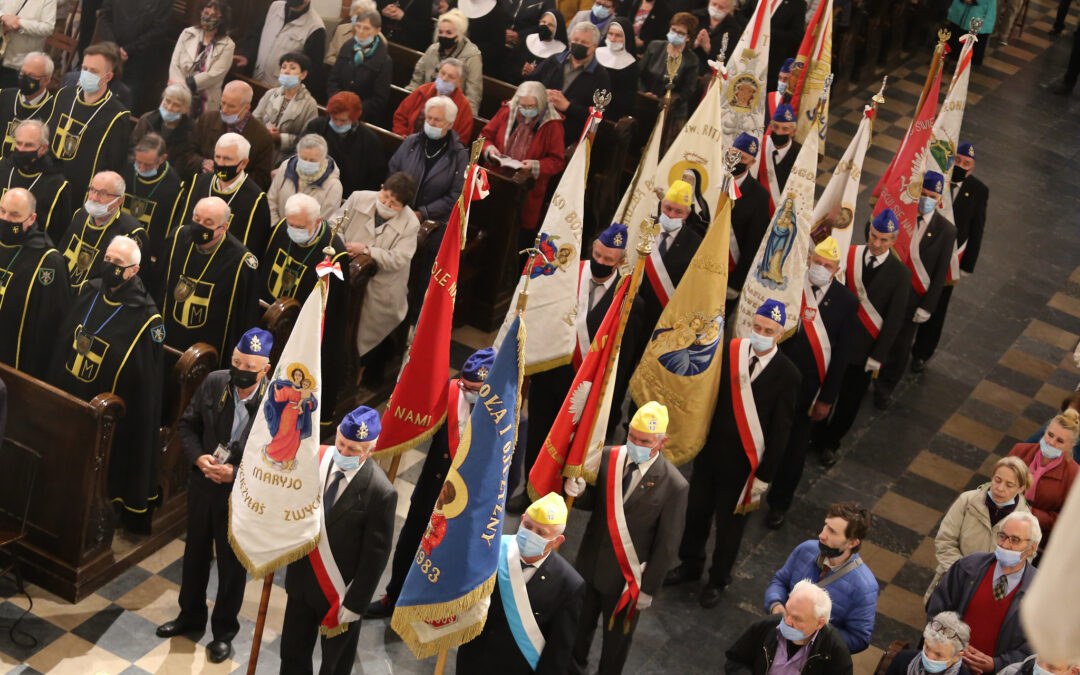The head of Poland’s Catholic episcopate has written to the prime minister to “insist on” the further loosening of restrictions on church attendance. With coronavirus infections falling, he says that people’s “inalienable human right” to practise their religious faith should be respected.
“Expressing my gratitude for the actions taken so far to protect the health and life of Poles, I insist once again on the reduction of restrictions in churches and other places of worship,” wrote Archbishop Stanisław Gądecki, president of the Polish Episcopal Conference (KEP), the central organ of the Catholic church in Poland.
“In view of the radically different and undoubtedly better epidemiological situation…[and] in the context of a significant reduction in restrictions in most areas of social and economic life…I would like to express my sadness at the maintenance of existing limits on the faithful in churches,” he added.
“[This] can be seen not only as a form of discrimination, but as a restriction of religious freedom,” he told Prime Minister Mateusz Morawiecki in the open letter. “Professing and practising faith is an inalienable human right and influences [man’s] spiritual, mental and physical condition.”
Coronavirus infections in Poland have been falling rapidly since early April, and currently stand at their lowest level since September. As a result, the majority of restrictions have been loosened since early May, including the return of children to school and the resumption of indoor and outdoor dining.
Limits on attendance in places of worship – which have stayed open throughout the pandemic – have also been reduced. On 4 May, the number of people who can attend religious services was increased from one per 20 square metres to one per 15 square metres, with distancing of 1.5 metres between worshippers and mask-wearing required.
However, Gądecki argues that the current restrictions, when Poland is averaging 400 new COVID-19 cases a day, are the same as when the figure was 30,000. He also notes that up to 75% occupancy is allowed on public transport, while in theatres and cinemas it is 50%.
“It seems that reducing restrictions on churches and other places of worship to the minimum necessary to meet the requirements of sanitary safety would demonstrate respect for the constitutional right to religious freedom,” the archbishop concluded.
Throughout the pandemic, senior figures in Poland’s influential Catholic church have resisted closing places of worship – as happened in many other European countries – and pushed for looser limits on attendance.
Ahead of Christmas, Gądecki asked for one person per seven square metres to be permitted into churches instead of one per 15 square metres. At Easter, when Poland was experiencing its highest ever levels of infections, he insisted that churches must remain open, although many businesses, cultural institutions and schools had to close.
“Leaving churches open is extremely important, because a person is not only a body, but also a soul, and prayer – especially in moments of trials and hardships – strengthens us on the path to salvation,” wrote Gądecki then, urging priests and parishioners to abide by tightened restrictions.
Main image credit: EpiskopatNews/Flickr (under CC BY-NC-SA 2.0)

Agnieszka Wądołowska is deputy editor-in-chief of Notes from Poland. She is a member of the European Press Prize’s preparatory committee. She was 2022 Fellow at the Entrepreneurial Journalism Creators Program at City University of New York. In 2024, she graduated from the Advanced Leadership Programme for Top Talents at the Center for Leadership. She has previously contributed to Gazeta Wyborcza, Wysokie Obcasy and Duży Format.




















